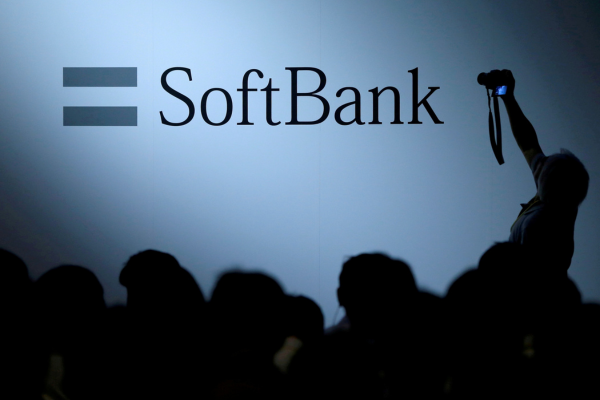Embracing disability and neurodiversity inclusion to bridge the fintech skills gap
A new project has launched that could double as a playbook for employers

Although diversity and inclusion have been an integral part of the public discourse on employment for a long time, we haven’t seen any signs of an imminent breakthrough in employer attitudes to disability and neurodiversity until recently.
Emerging and ever-expanding lists of global companies that demonstrate their commitment to disability and neurodiversity inclusion (or at least, claim to), however, suggest that we are reaching a tipping point.
This advancement could be, to a large extent, down to the fact that tapping into new talent pools in the technology industry is a more pressing issue than ever, with 34 per cent of UK-based tech firms experiencing tech skills shortages.
Charlotte Crosswell, chair of the government-backed Centre for Finance, Innovation and Technology, has already warned the financial services and fintech sectors, at the end of last year, of “the growing gap between the demand for technology skills from financial institutions and the available supply of talent.”
The government’s response to the growing problem has been to introduce the Global Talent Visa scheme, which allows “exceptional talent”, as well as “exceptional promise” (individuals with strong potential) in the digital technology sector to live and work in the UK for up to five years at a time.
While attracting top talent from abroad can’t, by itself, address the current shortage of approximately 900,000 IT workers on the UK labour market, thankfully, there seems to be another reservoir of tech talent closer to home.
Tapping into the domestic source of tech talent
A more positive and proactive employer attitude towards physically disabled and neurodiverse people can unlock the full potential of this cohort in filling technology-related roles.
While accommodating these employees in the office looked like a major investment only a couple of years ago, thanks to the spread of flexible and remote working arrangements and the advancement of digital communication and collaboration technologies, it no longer does.
The 4.5 per cent increase in the labour-market-participation rate of disabled people is a positive trend. However, the status of the jobs that disabled people take are often of lower status than their qualities as candidates could allow for – which also means that employment figures are hard to break down into subgroups thanks to terminological ambiguities. More willingness on the part of employers to make adjustments for disabled and neurodiverse employees could help these people leverage their talent in their jobs to the full, rather than settling for positions they are overqualified for.
Statistics focussing on employment metrics, for example don’t reflect cases of underemployment, when people with physical and mental disabilities work in jobs that virtually anyone could do with a few minutes’ or hours’ training thanks to the lack of accessible or autism-friendly office design.
Why neurodiversity shouldn’t be regarded as a disability
Neurodiversity is often presented as a sub-category of disabilities. However, when needs that differ from neurotypical people are met, neurodiverse people have great potential. Some psychiatrists, for example, tend to think of people living with milder forms of autism as “orchids” that languish in regular soil but thrive when they are planted into the right potting mix.
Similarly to orchids, neurodiverse people can also come into their own at a workplace that accommodates them. The problem is that employers, especially SMEs, struggle to accommodate for disabled or neurodiverse workforce for lack of a playbook that could help them harness the cohort’s potential.
It must also be noted that in an accommodating office or work environment both physically disabled and neurodiverse staff members are on an equal footing with their able-bodied and neurotypical fellow workers.
A new repository for employers ready to embark on a disability inclusion programme
In addition to diversity experts who offer consultancy services to employers on how to attract, engage and retain talent with disabilities across sectors, a new project launched in April this year at IFGS 2024 – the tenth annual conference of Innovate Finance – to provide support for fintechs in disability inclusion.
Project Nemo is a 12-month industry inclusion initiative urging the industry to better serve disabled people in the UK, focusing on long-term systemic change through “education, and empowering and showcasing people with disabilities.”
The project’s main mission is to connect fintech business leaders, allies, advocates and those with lived experience to a toolkit of resources and expertise that will enable them to build not only inclusive workplaces but also products and services.
As Project Lead Joanne Dewar, disability inclusion champion and fintech industry leader explained at IFGS in a fireside chat, the backbone of the project will be formed by a series of workshop events.
Each workshop covering a different subtopic of disability will be targeted at different functions of the industry such as marketers or product designers.
The content of each workshop will be permanently available for businesses as a chapter of an e-book on the topic, as well as a podcast series.
Dewar is aware of other digital technology sectors such as IT and cyber-security being several steps ahead of fintech in disability inclusion. (Business Reporter’s cyber-security talk show TEISS regularly includes neurodiverse guests on its panel.)
However, as the lead of Project Nemo, she strongly believes that a repository of expert advice, best practices and success stories can help the fintech sector follow closely in the trailblazers’ steps, as well as provide a template for late adopters of this new approach to inclusive employment.
In acknowledgement of how closely intertwined disability and neurodiversity inclusion are, Nemo appointed neurodivergence educator Alexandra Greening as Project Lead.

Zita Goldman
Most Viewed
Winston House, 3rd Floor, Units 306-309, 2-4 Dollis Park, London, N3 1HF
23-29 Hendon Lane, London, N3 1RT
020 8349 4363
© 2025, Lyonsdown Limited. Business Reporter® is a registered trademark of Lyonsdown Ltd. VAT registration number: 830519543





